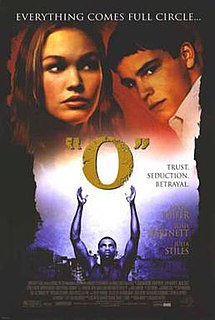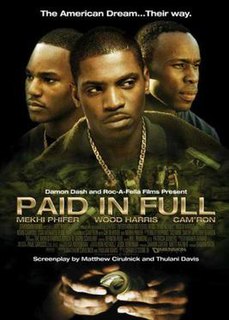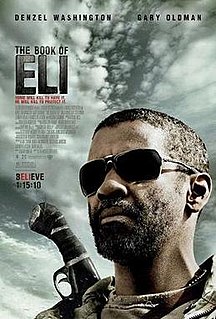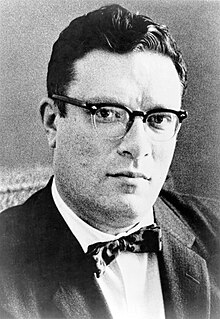
Anne Jacqueline Hathaway is an American actress and singer. One of the world's highest-paid actresses in 2015, she has received multiple awards, including an Academy Award, a Golden Globe, a British Academy Film Award, and a Primetime Emmy Award. Her films have earned $6.4 billion worldwide, and she appeared in the Forbes Celebrity 100 in 2009.

Titan A.E. is a 2000 American animated post-apocalyptic science fiction adventure film directed by Don Bluth and Gary Goldman and starring the voices of Matt Damon, Bill Pullman, Drew Barrymore, John Leguizamo, Nathan Lane, Janeane Garofalo, Ron Perlman and Tone Loc. Its title refers to the spacecraft central to the plot with A.E. meaning "After Earth". The animation of the film combines 2D traditional hand-drawn animation with the extensive use of computer-generated imagery.

Richard Stuart Linklater is an American filmmaker. Linklater is known for his realistic and natural humanist films, which revolve mainly around suburban culture and the effects of the passage of time. His films include the observational comedy film Slacker (1990); the coming-of-age comedy Dazed and Confused (1993); the romantic drama film trilogy Before Sunrise (1995), Before Sunset (2004), and Before Midnight (2013); the music-themed comedy School of Rock (2003); Boyhood (2014); and the rotoscope animated films Waking Life (2001) and A Scanner Darkly (2006).

O is a 2001 American drama film, and a modern adaptation of William Shakespeare's Othello, set in an American high school. It stars Mekhi Phifer, Julia Stiles, and Josh Hartnett.

Mission to Mars is a 2000 American science fiction adventure film directed by Brian De Palma from an original screenplay written by Jim Thomas, John Thomas, and Graham Yost. The film was based, in part, on the defunct Mission to Mars attraction at Disney theme parks. In 2020, the first manned Mars exploration mission goes awry. American astronaut Jim McConnell coordinates a rescue mission for a colleague. Principal support actors were Tim Robbins, Don Cheadle, Connie Nielsen, Jerry O'Connell, and Kim Delaney.

Mekhi Phifer is an American actor. He portrayed Dr. Greg Pratt on NBC's long-running medical drama ER and had a co-starring role opposite Eminem in the feature film 8 Mile. He was a reoccurring cast member on the Fox crime show Lie to Me in the role of Ben Reynolds before season three, and also starred as CIA agent Rex Matheson in Torchwood: Miracle Day.

Steal This Movie! is a 2000 American biographical film directed by Robert Greenwald and written by Bruce Graham, based on a number of books, including To America with Love: Letters From the Underground by Anita and Abbie Hoffman and Abbie Hoffman: American Rebel by Marty Jezer. The film follows 1960s radical figure Abbie Hoffman, and stars Vincent D'Onofrio and Janeane Garofalo, with Jeanne Tripplehorn and Kevin Pollak.

Clockers is a 1995 American crime drama film directed by Spike Lee. It is an adaptation of the 1992 novel of the same name by Richard Price, who also co-wrote the screenplay with Lee. The film stars Harvey Keitel, John Turturro, Delroy Lindo, and Mekhi Phifer in his debut film role. Set in New York City, Clockers tells the story of Strike (Phifer), a street-level drug dealer who becomes entangled in a murder investigation.

Paid in Full is a 2002 American crime drama film directed by Charles Stone III. It takes place in Harlem in the 1980s. The title of the film is taken from the 1987 album and 1987 song by Eric B. & Rakim. "Paid in Full" is based on three friends Azie "AZ" Faison, Rich Porter, and Alpo Martinez and their professional criminal exploits. The characters Ace, Mitch, and Rico (Cam'ron), respectively, are based on these three drug dealers.

Padre Nuestro, also known as Sangre de Mi Sangre is a 2007 Argentinean-American thriller film written and directed by Christopher Zalla, produced by Benjamin Odell and Per Melita and starring Jesús Ochoa, Armando Hernández, Jorge Adrián Espíndola, and Paola Mendoza.

This Christmas is a 2007 American Christmas romantic musical comedy-drama film produced by Rainforest Films and distributed by Screen Gems. Written, produced and directed by Preston A. Whitmore II, it is a Christmas time story that centers on the Whitfield family, whose eldest has come home for the first time in four years. The film is based on the 1970 Donny Hathaway song of the same name, which is covered by Chris Brown in the film. The Whitfield family overcome many trials and obstacles during the Christmas season.
The Ocean's series is a collection of American heist films anchored by a trilogy edited, directed or produced by Steven Soderbergh. The original three films were written by George C. Johnson, George Nolfi, along with Brian Koppelman and David Levien, for each respective film. Released from 2001 to 2007, the trilogy is often cited as defining its genre and leading to a proliferation and commercialization of heist films throughout the world.

The Book of Eli is a 2010 American post-apocalyptic neo-western action film directed by The Hughes Brothers, written by Gary Whitta, and starring Denzel Washington, Gary Oldman, Mila Kunis, Ray Stevenson, and Jennifer Beals. The story revolves around Eli, a nomad in a post-apocalyptic world, who is told by a voice to deliver his copy of a mysterious book to a safe location on the West Coast of the United States. The history of the post-war world is explained along the way, as is the importance of Eli's task. Filming began in February 2009 and took place in New Mexico.

Brian's Song is the 2001 remake of the 1971 television film Brian's Song, telling the story of Brian Piccolo, a white running back who meets, clashes with and befriends fellow Chicago Bears running back Gale Sayers. The movie was adapted from Sayers' own words in his autobiography, I am Third. The television movie, produced by Columbia TriStar Television, was first broadcast in the US on The Wonderful World of Disney on ABC.

Rio is a 2011 American 3D computer-animated musical adventure-comedy film produced by Blue Sky Studios and directed by Carlos Saldanha. The title refers to the Brazilian city of Rio de Janeiro, where the film is set. The film features the voices of Jesse Eisenberg, Anne Hathaway, Leslie Mann, Rodrigo Santoro, Jemaine Clement, George Lopez, Tracy Morgan and Jamie Foxx. It tells the story of Blu (Eisenberg), a male Spix's macaw who is taken to Rio de Janeiro to mate with a free-spirited female Spix's macaw, Jewel (Hathaway). The two eventually fall in love, and together they have to escape from being smuggled by Nigel (Clement), a cockatoo. The theme song, "Telling the World," was performed by Taio Cruz.

Escape from Planet Earth is a 2013 Canadian-American 3D computer animated comedy-science fiction film produced by Rainmaker Entertainment and distributed by The Weinstein Company in the United States and Alliance Films in Canada, directed by Cal Brunker, with a screenplay which he co-wrote with Bob Barlen, and features an ensemble voice cast that includes Rob Corddry, Brendan Fraser, Sarah Jessica Parker, William Shatner, Jessica Alba, Jane Lynch, Craig Robinson, George Lopez, Sofía Vergara, Steve Zahn, Chris Parnell, Jonathan Morgan Heit, and Ricky Gervais. The film was released on February 15, 2013. This was the first Rainmaker Entertainment film released in theaters. It was also Jessica Alba's voice debut in an animated feature. The film earned $74.6 million on a $40 million budget.

White House Down is a 2013 American political action thriller film directed by Roland Emmerich and starring Channing Tatum, Jamie Foxx, Maggie Gyllenhaal, James Woods, Jason Clarke, Joey King, and Richard Jenkins. The film's screenplay, by James Vanderbilt, features an assault on the White House by a paramilitary group and the Capitol Police Officer who tries to stop them.

Pawn Shop Chronicles, also known as Hustlers, is a 2013 crime comedy film directed by Wayne Kramer and written by Adam Minarovich. The film stars an ensemble cast, led by Paul Walker, Matt Dillon, Brendan Fraser, Vincent D'Onofrio, Norman Reedus, and Chi McBride. Centering on the events in and around a pawn shop, Pawn Shop Chronicles tells three overlapping stories involving items found within said pawn shop. This was the final film featuring Walker to be released in his lifetime, as he died four months after its release.


























